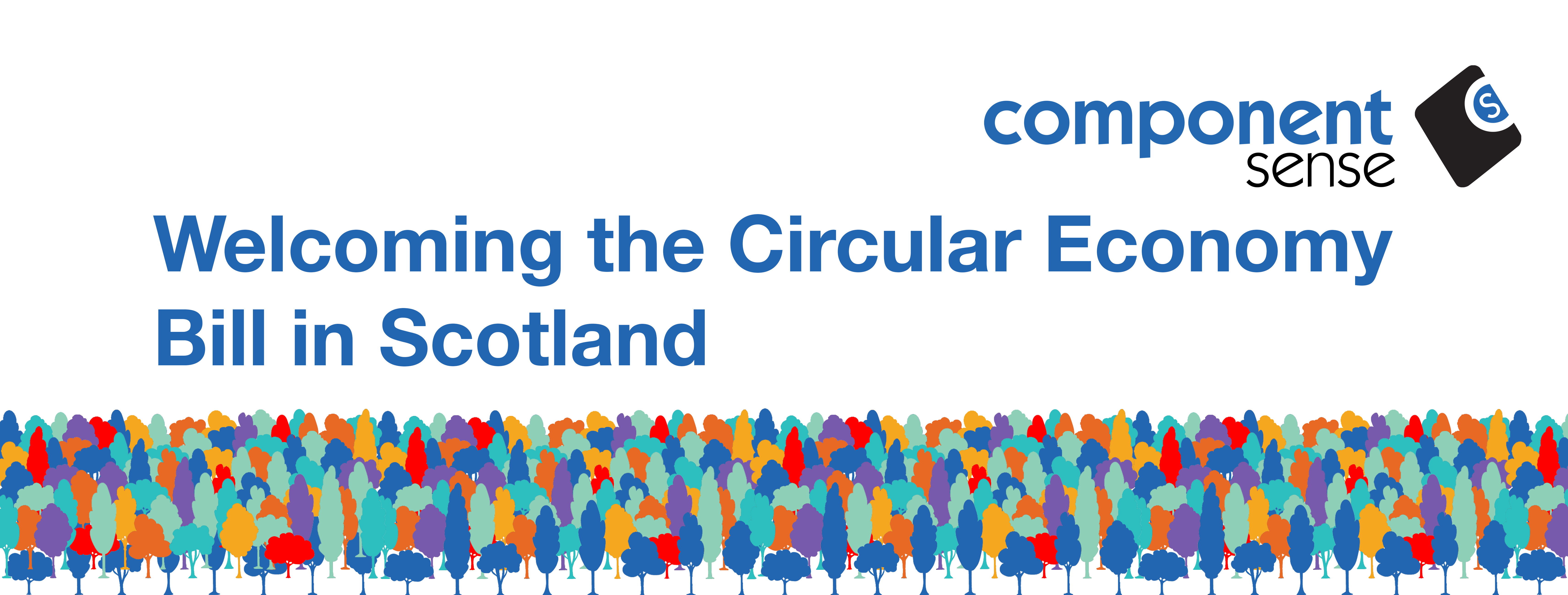Welcoming the Circular Economy Bill in Scotland

At Component Sense, our mission is to lead electronic manufacturers toward zero waste.
Thus, we welcome the Scottish government’s new Circularity Bill for a more sustainable economy! We are delighted that our home country of Scotland is taking significant steps towards a greener future.
What is the Circular Economy Bill passed by Scottish Greens MP Lorna Slater? In short, the bill will provide the legislation to transform Scotland's economy into a circular one, moving the country towards a zero-waste and sustainable society.
This bill will provide government ministers with the power to:
- Set local recycling targets
- Ban the disposal of unsold consumer goods
- Place charges on single-use items
- Set statutory targets for the delivery of a circular economy to measure progress
- Crackdown on fly-tipping and littering from cars
- Co-design a national Code of Practice with the government
Overall, MP Slater summarises that the bill should help to establish a “modern, easy-to-use waste service that makes it easy for people to do the right thing for the planet.”
Sustainability has been on Scotland’s agenda for many years now. We have all been trying to recycle and we have all switched plastic straws for soggy paper ones. So, why is it still important to introduce further laws that will impact our economy?
Put simply, Scotland’s economy could be greener. Four-fifths of Scotland’s carbon footprint results from products and services. This figure means that our country’s material footprint per capita is 21.7 tonnes. As a nation, our carbon footprint goal is set to 11.9 tonnes per capita — making our current consumption twice over target! The Circular Economy Bill is designed to slash the carbon footprint of our country and help us all achieve our reduced carbon goals. We must evolve to consume differently and use resources more efficiently, and ultimately, these actions will boost the Scottish economy. We will talk about these economic gains later on in this blog post!
For now, let us explore why paper straws and recycling materials are not the ultimate solution. Winifred Ijomah, technical director of the Scottish Institute for Remanufacturing and Reader at the University of Strathclyde, asserts that recycling is not inherently environmentally friendly. She states that “if you recycle something, you take a product that already has energy put into making it, and then if you want to make something useful with that recycled material you need to put further energy into it.” Therefore, our focus must shift towards reducing overproduction and optimising products for reuse, rather than relying on recycling. This approach fosters a circular economy, protects the environment, and saves a lot more money in the long run.
To compete globally, Scotland - and the whole West, in fact - needs to prepare. This means embracing circularity at all levels of production, from design through to manufacturing and shipping. Dr Paul Smith, professor at The Glasgow School of Art, emphasises that the new generation of designers is already learning to combine design and sustainability to minimise environmental impact and maximise profit.
What is in it for the Scottish economy? Supporters of the Circular Economy Bill assert that if we change our perception of production, our economy will blossom. Iain Gulland sums it up well: while “we design products to last”, new production processes will “create new markets, encourage and empower innovation, and see greener job opportunities emerge.” MP Slater is also betting on this card, saying “there are huge economic opportunities in the circular economy, and we have already seen businesses in Scotland creating jobs by turning what we might otherwise throw away into valuable new products and services.”
The sceptical minds among you will say that a legal corset will hurt the economy. This is a legitimate question, as economic regulations will naturally affect the coexistence of politics and society.
Why frame it negatively? The passing of the Circular Economy Bill is a great opportunity to positively respond to the challenges of climate change. Ijomah does not exaggerate when saying there is now a real chance for Scotland to become a world leader in sustainability and circularity. Climate change is only worsening, and circular economies are the most environmentally friendly way to ensure resiliency and longevity.
The Circular Economy Bill is a significant first step to implementing proper legislative change to empower sustainability in Scotland. Naturally, bills such as this may pose challenges to entrenched, large companies. However, it will also enable many small, flexible companies and start-ups to take the lead toward positive change.
As a sustainability-focused business with our headquarters in Scotland, Component Sense is excited by this legislation! Our company specialises exclusively in the re-distribution of excess and obsolete electronic component stock, and our mission is to lead electronic manufacturers toward zero waste. We are experts in helping electronic manufacturing businesses become more efficient, sustainable, and profitable. If you want to take charge of your excess stock and be kinder to our beautiful planet, click the button below!
Send us an email to: excess@componentsense.com or contact us below!